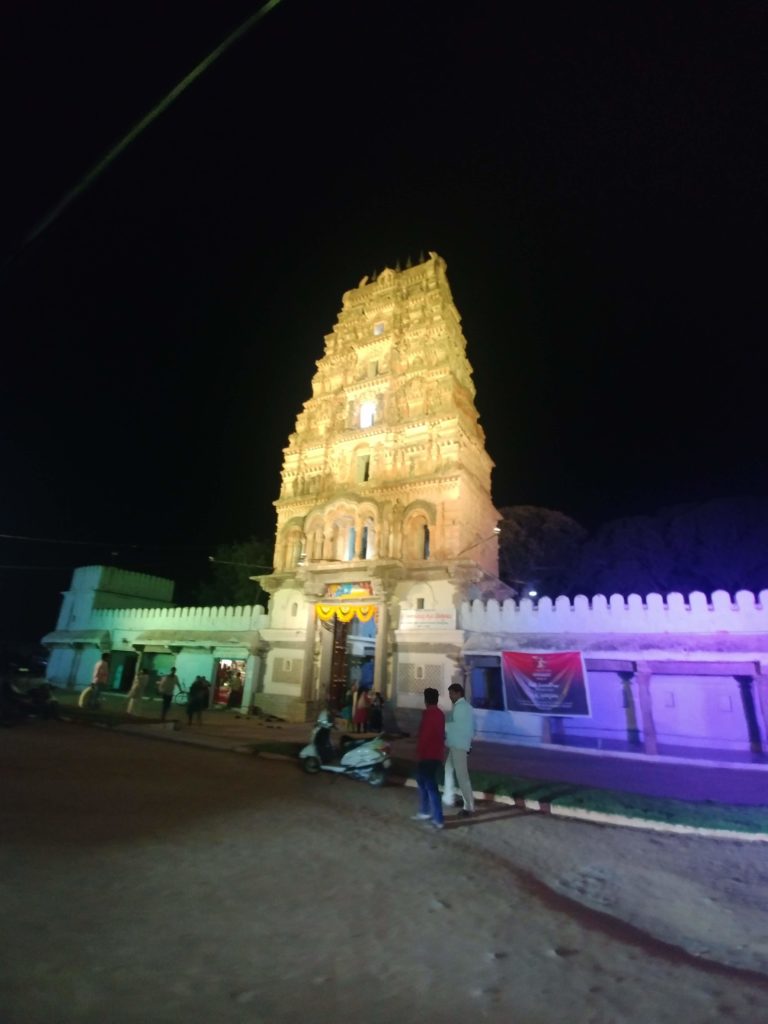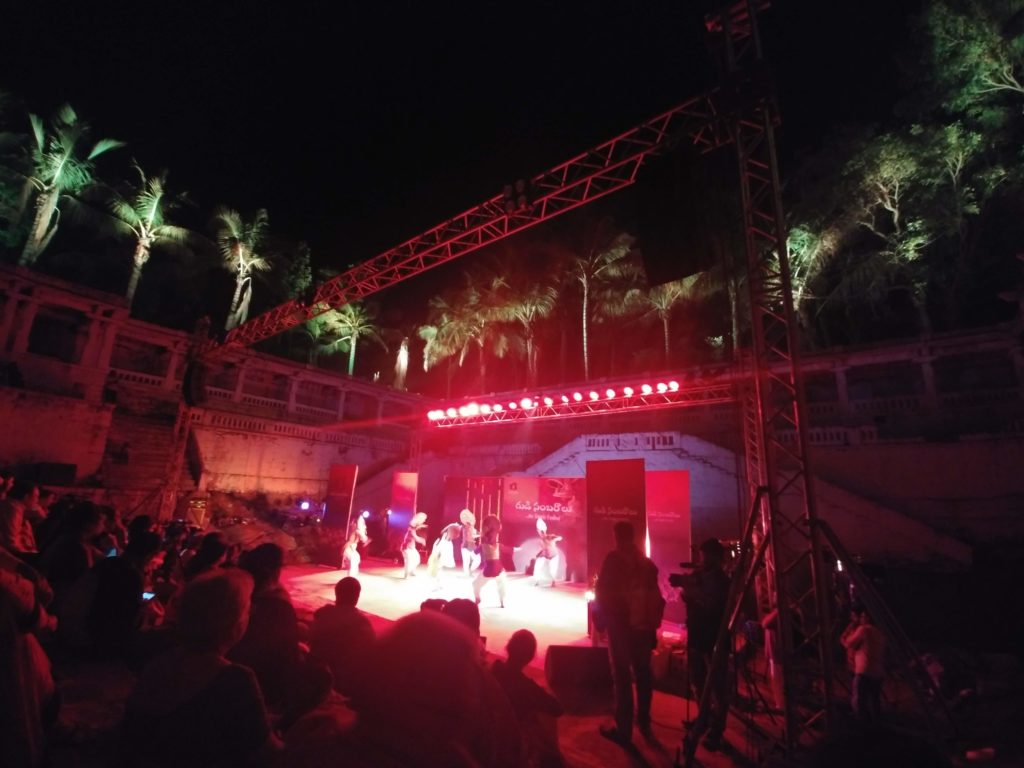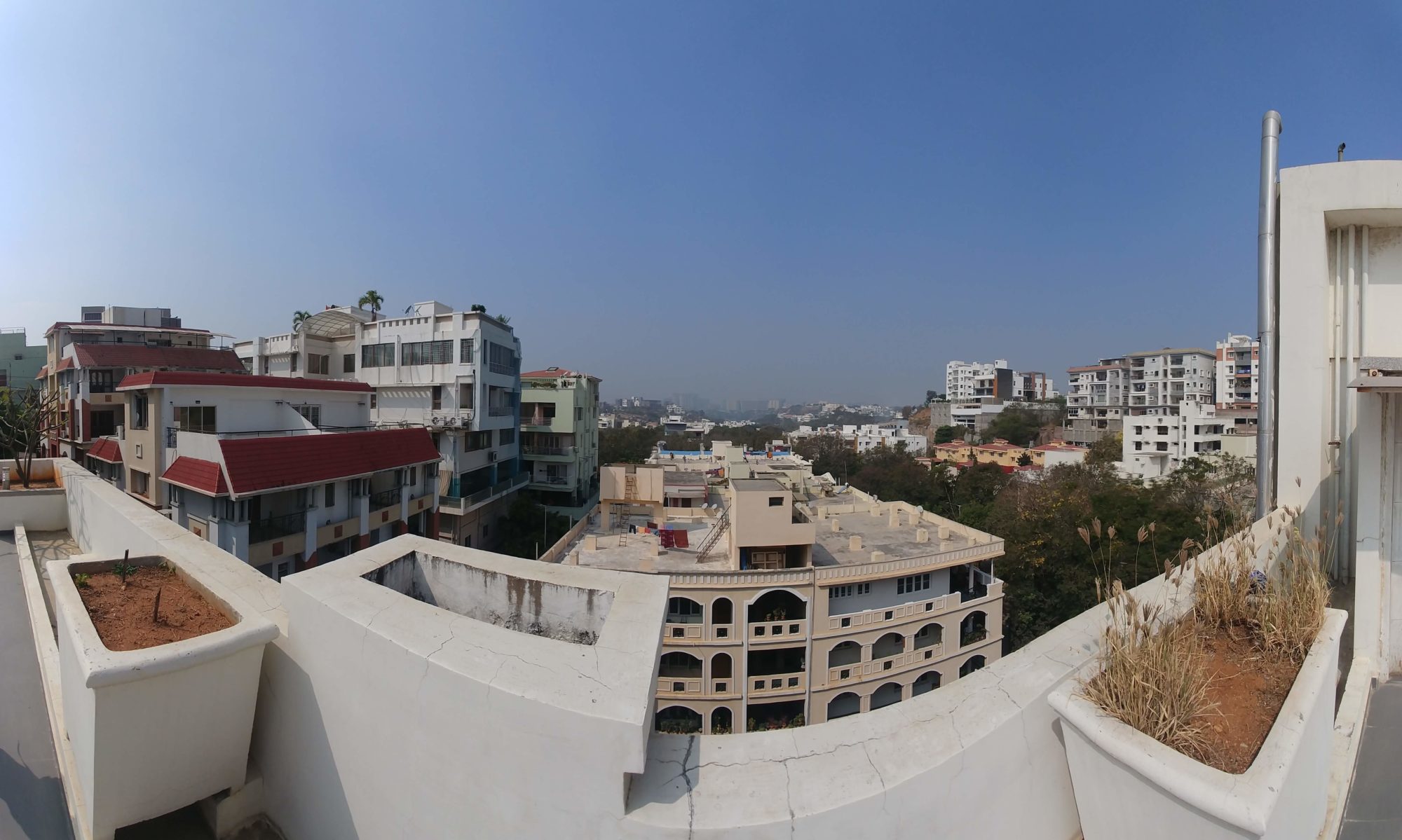By Indian standards, Hyderabad is a very young city, at a little bit over 400 years old. (I’m working on a history of Hyderabad post, but my editor/sister says I have to work my way up to the drier stuff or I’ll lose all of you loyal readers. As if history is dry?!) So I was quite surprised when I was invited to see a dance performance in the well of a 500+ year old temple–how could it be that old? how would we all fit inside a well and stay dry? But apparently the temple belonged to a village that predated the city and its ancient well was both wide and dry.

On our way we encountered some friends of Neehar’s (actually this happens everywhere we go, making Hyderabad feel more like a small town than a city of 10 million). We asked what brought them to the show, and it turned out to be the small fact that their family had been caretakers of this temple for the last 500 years.
The performance was set up with the dancers in the bottom of the well and the audience seated on broad stone stairs. It featured modern interpretations of a variety of traditional regional dances. One of my favorites involved dancers spinning around at high speed, moving their arms all over while keeping a plate balanced against an open hand. I thought briefly the plates might somehow be attached until one of the dancers faltered and her plate went clattering across the ground. The last dance was the best, featuring fluid moodern interpretations mirrored by the percussive traditional moves that inspired them.

The dance ended with a speech by the leader of the troop, Mallika Sarabhai, celebrating the diversity of India that led to the variety of dance we’d seen and calling for rejection of the divisive politics of Hindu nationalism. She also invited us to Hyderabad Literary festival the following weekend (where she would give the keynote address).
I decided to accept. The literary festival took place at Neehar’s old school, which hosts literary events and a lot of other random but very interesting talks, on topics like monetary policy and Hindu Rashtra (Hindu nationalism).
At the festival, I went to a poetry reading by a famous Indian actress Shabana Azmi, whose father was the famous Urdu poet Kaifi Azmi. She read a beautiful poem of his and then explained in English that it was about the sadness of a homeless construction worker building a residence that he cannot live in. I went home and looked up a translation (see below). That reminded me that I don’t really understand poetry regardless of the language.
Tonight a searingly hot breeze is blowing,
Tonight on this footpath there will be no sleep
Come let us arise, you and I, and you too, and you
A window in this wall will surely find an opening.
To swallow us this earth was even then waiting
When our feet touched the ground from branches breaking
These houses know nothing, those who live in them
Know nothing of the days we spent in caves hiding.
Our hands could not tire, they had become the mould
To make statue after statue for someone else to hold
We made the wall strong, stronger and stronger still
Embellished the roof, gave doorways a strength untold.
Because the wind could so easily extinguish the flame
We gilded the sky with electricity instead
When the palace was built, someone else sat on guard
In squalor we slept with cacophony our bed.
The fatigue of relentless labour in every vein
Images of the palace in our eyes remain
Unending, the day melts on our heads still
Our unslept nights remain just the same.
Other entertainment included a workshop on how to get published during which an angry young author interrogated a publisher and a writing coach about why it’s such an awful process and Mallika Sarabhai ‘s keynote. She ripped into the audience for being armchair liberals who were too comfortable with the status quo to do anything about inequality in India. It was like a little taste of home. (I miss you, fellow angry San Francisco leftists!)
